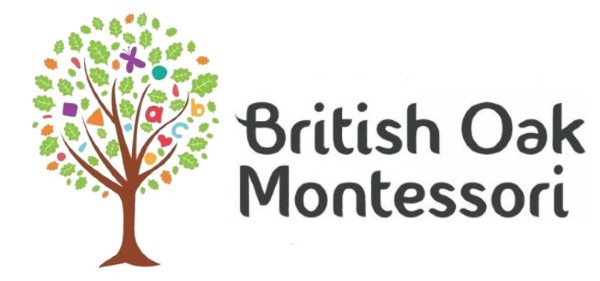Through the use of the Montessori approach, a child will acquire knowledge of his or her own through hands-on experience in a safe nurturing environment filled with love and acceptance.
- The teacher has an unobtrusive role in the classroom
- The environment and method encourages self-discipline
- The children choose their own work and set their own learning pace
- The child discovers concepts from self-teaching materials and is allowed to work as long as he/she wishes on a chosen activity
- The teacher recognizes each child’s ‘sensitive periods’ and monitors and records their progress.
Our Montessori curriculum identifies main areas of activity which encompass the six areas of learning and development identified and accepted in the EYFS (Early Years Foundation Stage). These are namely:
Practical Life
The first activities children take part in, developing their ability to look after themselves and their surroundings. They can practice dressing skills with zips, buttons, buckles and bows on specially designed frames. Use little jugs, filled beans and then water to practice pouring; spoon, scoop or use droppers to transfer from one bowl to another. It is through these exercises that the child develops the self-confidence, control and concentration essential for the mastery of the other more advanced areas. Most importantly, Practical Life bridges the gap between home and nursery, between dependence and becoming independent. This allows the child to become very interested in the activity itself and more independent and aware of his/her environment.




Sensorial
These are specially designed materials to encourage development and refinement of the senses and provide the child with keys to the world around him. This enables the child to develop the ability to make fine discriminations through exploration of different shapes, textures, sizes, colour, and sound and then respond to what they can see, hear, smell and touch. The aim of the materials is an inner one – the child trains himself to observe: that he is led to make comparisons between objects, to reason and decide. The child is encouraged to use terminology to explore and to classify through the use of materials graded from the simple to the more complex.



Language and Literature
Talking about experiences, listening to stories and singing together is encouraged on a daily basis. The alphabet is taught phonetically using sandpaper letters to provide a sensorial impression of the letter forms. Writing often comes before reading in a Montessori classroom with children building up their first words phonetically using the large moveable alphabet. When the child is ready the reading programme is colour coded for each level. There is also a book corner to encourage a positive attitude to reading.



Mathematics
Children gain a physical impression of size and quantity long before they begin to manipulate numbers by working with the number rods, counting out beads, spindles and arranging counters into odd and even. Number symbols are taught using the sandpaper numbers. Progressing through these stages the child learns to enjoy number and can then be introduced to more complex activities: sequencing, quantifying, addition and subtraction.



Culture
Children are born with a desire to learn about their world and we nurture this interest. The nature table and the ever changing seasons provide a good starting point to give the children the keys to going and finding out. They can study plants, animals, globes, maps and how other children and their families live in other parts of the world. The breadth of knowledge at nursery of geography, history and science is quite astounding.



Creativity
The children are encouraged to engage and express themselves freely through arts and crafts, music and dance activities. A generous range of musical instruments are readily available and teachers sing regularly with the children. Specialist music teachers are also employed to initiate a love of music and the instruments. Music itself is a great teacher and revealer of children’s natural character and sensibility. Our classrooms are also equipped with CD Players which children can enjoy for a variety of music, nursery rhymes and stories.



Physical exercise
Here the children develop and improve motor skills as they climb, jump and swing through individual or group activities of skipping, parachute games, obstacle courses, ball games, going for walks, gardening and playing in sand pits. We place great importance on physical education which is essential in developing children’s motor skills to support learning. We recognise the early childhood years as the period where children develop habits and lifestyles that continue into adult life.
